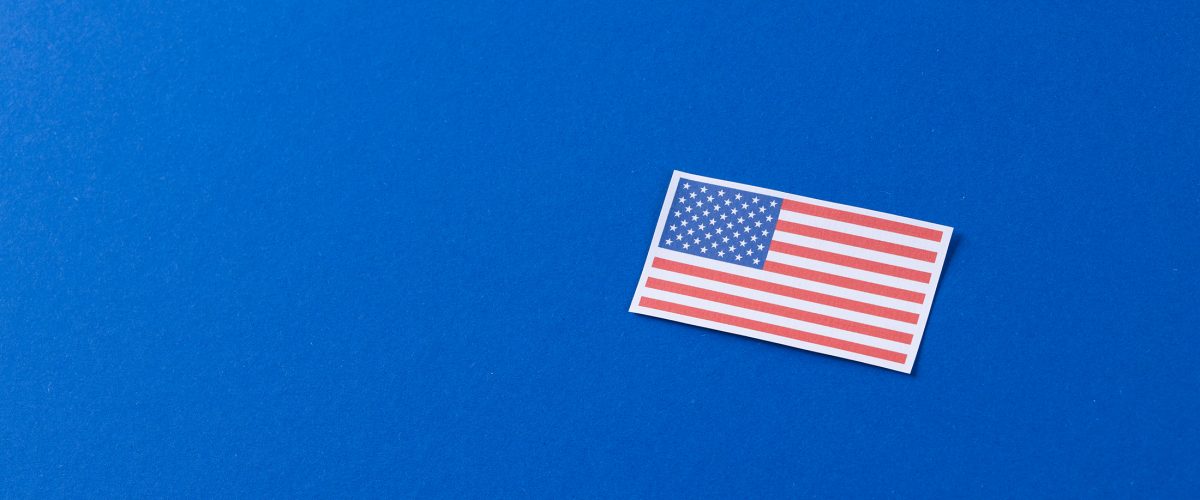How many times will evangelical Christians attempt to put the David Barton-inspired revisionist American history into public school curriculums?
Every time a state official wakes up one morning and reads the Bible or the Constitution wrong, expect another outburst of “American exceptionalism.”
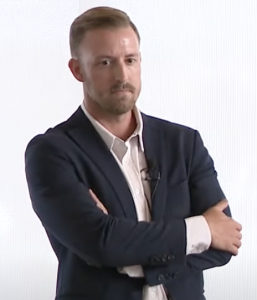
Ryan Walters
Oklahoma’s state superintendent of education, Ryan Walters, has made clear his commitment to “American exceptionalism.” He says the executive committee he has selected to revise state history standards are “experts in American exceptionalism.” He fails to mention that such “experts” are not qualified to teach or interpret American history.
The committee features prominent conservatives, including Dennis Prager of PragerU, David Barton of the Christian nationalist organization Wallbuilders, and the president of the Heritage Foundation, Kevin Roberts. The Heritage Foundation is the think tank behind Project 2025, a movement that proposes to dismantle the U.S. Department of Education.
“There are no American historians on the committee.”
There are no American historians on the committee. Kathleen A. Brosnan, University of Oklahoma associate professor and Paul H. and Doris Eaton Travis Chair in Modern American History, is not on the committee. Neither is Elizabeth Grennan Browning, assistant professor, University of Oklahoma, with research expertise in U.S. environmental history and American capitalism. Nor Lauren Duval, assistant professor, University of Oklahoma, concentration early American history, American Revolution and women’s and gender history.
It’s like selecting a committee to revise medical practices with a group of Oklahoma ranchers and Arkansas hog farmers.
Barton’s fingerprints are all over the Oklahoma decision to teach “American exceptionalism.” Barton has been wandering in the wilderness of American exceptionalism for 40 years.
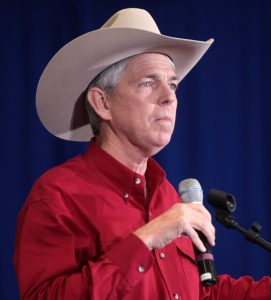
David Barton
For example, 15 years ago, in 2009, a Barton-inspired Texas State Board of Education, led by Don McLeroy, a dentist, decided to make drastic changes to the social studies curriculum in Texas public schools. Randall J. Stephens and Karl W. Giberson, in The Anointed: Evangelical Truth in a Secular Age, document McLeroy’s sweeping curriculum changes to social studies.
McLeroy complained Texas students were being taught a liberal version of history. McLeroy wanted to replace stories about treatment of Native Americans and African Americans with stories about the wealthy white men like Carnegie and Rockefeller,
According to McLeroy, Texas students were not learning about America’s godly heritage. “Christianity has had a deep impact on our system,” he told the New York Times. “The men who wrote the Constitution were Christians who knew the Bible.” Barton testified to the board that students should understand that Christianity was the key to American exceptionalism.
There are at least four major problems with Barton’s “American exceptionalism” that lead to one conclusion: The history curriculum of American exceptionalism must be put out of business.
American exceptionalism is the mother of Christian nationalism
American exceptionalism is the belief that the United States, as a nation, is not only different than other nations but better than other nations. American evangelicals are prone to believe Americans possess a righteousness lacking in other nations.
This belief has expanded to include evangelical groups such as the independent charismatic network of prophets, the Seven Mountains Dominionists and prosperity gospel televangelists.
Christian nationalists intend to “rule” the USA. The so-called “Seven Mountains” are: government, education, arts and entertainment, media, business, religion, family. This movement ignores basic Christian history.
“Jesus was not American. Jesus was not a white man.”
Jesus was not American. Jesus was not a white man. Christianity, a foreign religion, was not invented in America but Palestine. The Bible wasn’t written in English but in Hebrew and Greek. The King James Bible relied more on the Catholic Vulgate translation than on Hebrew and Greek manuscripts.
Before there were Protestants, there were the Catholics and the Orthodox. America is not God’s nation. Americans are a polyglot of peoples, a melting pot of races, cultures, ethnicities and religions.
Christian nationalism is a political/religious P. T. Barnum “humbug.” It’s a Yankee Doodle hat; a red, white and blue suit; and some shoes. These ideologues are preaching a heresy with no separation of church and state, no racial justice, no diversity, no democracy. It’s nothing but an empty suit.
As a Texan might still say, “All hat and no cattle.” Even the biting sarcasm originated not with Texans, but with the Osage tribe of Oklahoma.
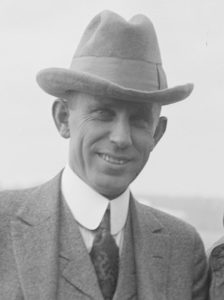
J. Frank Norris
The current obsession with American exceptionalism hides the deep stains of nativism. Fireball Texas fundamentalist Baptist J. Frank Norris, claiming “many of my warmest friends are Catholics,” proceeded to claim Catholics “would behead every Protestant preacher …. burn to ashes every Protestant church and dynamite every Protestant school. They would destroy the public schools.”
The agenda of Christian nationalism disguises its vision to be a different America. California State University professors Michelle A. Holling and Dreama G. Moon label this America as Amerikkka.
“Given America was founded on imperialism and colonialism with their attendants of oppression and exploitation, its twin, Amerikkka surfaces. Spelling Amerikkka as such is to highlight an ideology of white supremacy (not a particular embodiment as in the KKK).”
It’s a short bus ride down Main Street USA from anti-Catholicism to Christian nationalism expressing nativism and white supremacy.
The nation began by affirming all men are created equal, but the equality was only granted to white men. Thomas Jefferson first articulated the vision and dream of America: “All men are created equal.” As David Livingstone Smith reminds us, in Less than Human, “The reality is that white Americans have never really resolved the question of who should be regarded as human.”
American exceptionalism is white evangelical insecurity wrapped in red, white and blue
American exceptionalism should be called by its truthful name, “evangelical insecurity.” The notion America was founded as a Christian nation by evangelical Christians is the “big lie” designed to protect evangelical identity.
Evangelical insecurity rears its head whenever evangelicals think they are being left out, slighted or, God forbid, persecuted. When American historians turned in the 1950s to incorporating the voices of minorities — African Americans, Native Americans, Catholics, women, immigrants and others — evangelicals felt left out of everyone else having a voice.
Hell hath no fury like an evangelical slighted. As Martin Marty put it, evangelicals feel “left out in everyone else’s liberation.” I agree with Marty’s conclusion: “We will make no progress on this issue until we see the Christian right as a tribe that feels slighted.”
American exceptionalism is idolatry
If American exceptionalism is not idolatry, there is no such thing as idolatry. God has chosen to do the work of the kingdom through the Son, Jesus Christ. The ongoing ministry of Jesus has been committed not to a nation, but to the church. The community of Jesus, the church, exists as an alternative to the politics of fear and violence.
“The ongoing ministry of Jesus has been committed not to a nation, but to the church.”
The claim of exceptionalism suggests the desire of James and John to be seated on either side of Jesus in the kingdom. As American historian John Fea puts it, “The belief that America is a Christian nation is a form of idolatry.”
Stanley Hauerwas reminds us: “Idolatry is first and foremost a matter of desire. What we know is determined by what we desire. What we most desperately want will usually indicate the idolatries that shape our lives.”
Christian nationalism represents a desire to ascend to the throne of God, to rule the nation in the name of God for the benefit of the nationalists. This is idolatry.
American exceptionalism is the rhetorical weapon of the demagogue
American exceptionalism, seen in the light of day, is nothing more than the rhetorical weapon of American demagogues. Rhetorical scholar Jennifer Mercieca: “American exceptionalism appeals are particularly pernicious because they take advantage of the nation’s hope that it can be a beacon of freedom and liberty for others and turns …. into hubris and, potentially, to violence.”
“America is different but not exceptional.”
America is different but not exceptional. It is painful to watch Americans to continue to push the “No. 1” myth. According to the World Happiness Report, the USA is only the 23rd happiest country in the world. Finland is No. 1.
Political scientist Seymour Martin Lipset argues American exceptionalism is a two-edged phenomenon. “It is the most religious, optimistic, patriotic, rights-oriented and individualistic.” Lipset explains that America is simply different from other nations — in some good ways and some bad ways.
America doesn’t have to be great again; America doesn’t have to lead the world; it must join the world and serve the world. Then, with greater humility, and less arrogance, we can play a leadership role.
American exceptionalism is a piece of nativist propaganda, a rhetorical weapon for demagogues, a false patriotism and an arrogant way of interacting with the other nations of the world. This misinformation has no place in the history curriculum.
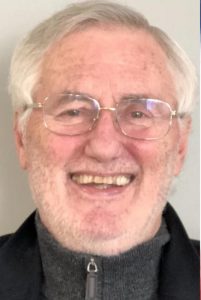
Rodney Kennedy
Rodney W. Kennedy is a pastor and writer who serves in New York state and Louisiana. He is the author of 10 books, including his latest, Good and Evil in the Garden of Democracy.
Related articles:
How American exceptionalism is killing America | Opinion by Richard T. Hughes
Oklahoma schools chief mandates Bibles in every public school classroom


